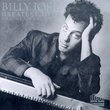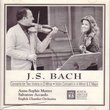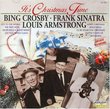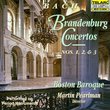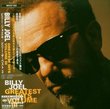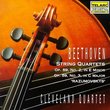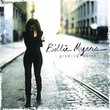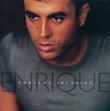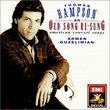| All Artists: Andre Campra, Francois Couperin, William Christie, Les Arts Florissants, Ruth Unger, Paul Agnew, Anne-Marie Lasla, Catherine Girard, Maia Silberstein, Charles Zebley Title: Salve Regina by Campra . Couprin (Petits motets) / Agnew, Lasla, Les Arts Florissants, Christie Members Wishing: 1 Total Copies: 0 Label: Virgin Classics Release Date: 5/10/2005 Genres: Pop, Classical Styles: Vocal Pop, Opera & Classical Vocal, Chamber Music, Historical Periods, Baroque (c.1600-1750), Classical (c.1770-1830) Number of Discs: 1 SwapaCD Credits: 1 UPC: 724354572029 |
Search - Andre Campra, Francois Couperin, William Christie :: Salve Regina by Campra . Couprin (Petits motets) / Agnew, Lasla, Les Arts Florissants, Christie
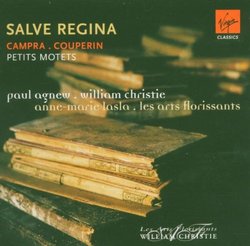 | Andre Campra, Francois Couperin, William Christie Salve Regina by Campra . Couprin (Petits motets) / Agnew, Lasla, Les Arts Florissants, Christie Genres: Pop, Classical
These exquisite miniatures by Campra and Couperin bear no resemblance to the "grand motets" of Lully, et al, with brass, chorus and tympani blazing away; rather they are introspective, intimate, prayerful, mellow pieces, e... more » |
Larger Image |
CD DetailsSynopsis
Amazon.com These exquisite miniatures by Campra and Couperin bear no resemblance to the "grand motets" of Lully, et al, with brass, chorus and tympani blazing away; rather they are introspective, intimate, prayerful, mellow pieces, each less than 10 minutes long, for solo high, light tenor (haute-contre), accompanied by organ, viola, violin and occasional flute. The texts are biblical--a few filled with penitence and grief ("Usquequo, Domine" by Couperin, asking how long it will be before salvation), a few with joy (Campra's "Florete prata," with images of flowers bursting forth in the presence of the Lord)--and each is sung with great intensity, elegance, pure, unforced tone and impeccable phrasing and diction by Paul Agnew. The polished accompaniments by William Christie, who leads from the organ, are as tasteful and flawlessly French as they should be. The experience here is sober and sincere, and quite moving. --Robert Levine Similarly Requested CDs
|
CD ReviewsIt's All About Paul Giordano Bruno | Wherever I am, I am. | 09/04/2008 (5 out of 5 stars) "Be careful, friends. I'm giving this CD a five-star rating because of the intrinsic merit of the music and of the musicianship of Les Arts Florissants, the most accomplished performers of French baroque music in the world. That said, I confess I have my doubts about whether most listeners will enjoy this recording unless they have the good sense to listen to the nine "petits motets" just one at a time. These are compositions for solo singer and continuo (provided here by organ and viol da gamba), though several of them also include obbligato parts for violin or flute. The soloist on all nine pieces is Paul Agnew. In all honesty, 72 minutes of the same voice is a challenge to my attention span, especially when all nine pieces are quite similar in affect. And I'm a big fan of French Baroque and of Paul Agnew!
Andre Campra (1660-1744) and Louis Couperin (1668-1733) were both 'tainted' in the eyes of their French rivals by their Italian connections and affinities. If you know the repertoire well, you'll hear that the rivals were correct - all the better! These pieces breathe spaciously, with a melodic lilt that separates them from those largely forgotten rivals. The whole tradition of Petits Motets, performed at Gallican 'low mass' and much favored by King Louis XIV, has Italian roots, both musically in the age of the Frenchest Italian of all, Lully, and politically via the influence of Cardinal Mazarin. Listening to this music, by the way, always sets me in my fencing slippers in the milieu of the Three Musketeers. Paul Agnew enunciates French very clearly and emotively...for a Scot! Trained in Edinburgh, employed in his early singing career by the cream of English Early Music ensembles! Since the early '90s, however, Agnew has been the protege and favorite tenor of William Christie, and the only person besides Christie himself ever to conduct Les Arts Florissants. Agnew has become the embodiment of the French style in tenors, which emphasizes clarity of diction over clarity of tone, tasteful embellishment over virtuosity, affect over sonority. His voice has evolved precisely the fibrous, slightly nasal quality that makes French sound French. In other words, he has the perfect voice and technique for these little motets, with their tightly crafted rhetoric. I hope it doesn't imply disrespect to say that one can't listen to this performance straight through; on the contrary, such compositional art and such vocal skill deserve the respect of listening selectively. We've been blessed recently with a swarm of releases and re-releases of great French sacred music, especially the Grands Motets (with chorus and orchestra) and Petits Motets of Lully, Campra, Couperin, Rameau, and others. The ensembles to look for are Le Concert Spirituel conducted by Herve Niquet, and above all Les Arts Florissants." |

 Track Listings (9) - Disc #1
Track Listings (9) - Disc #1
